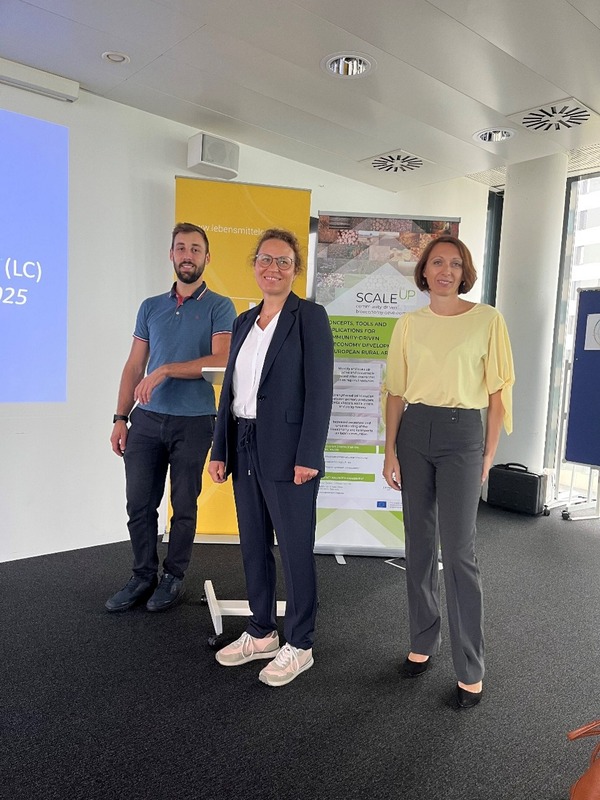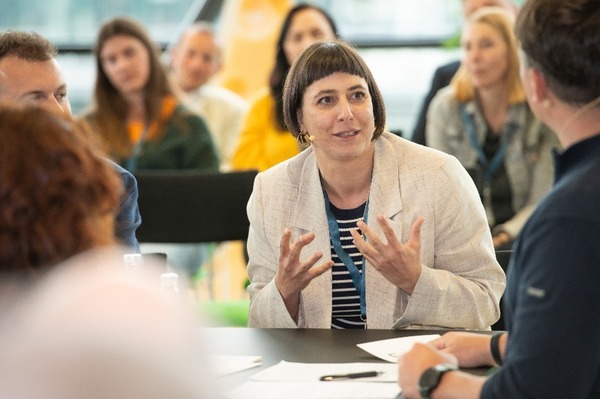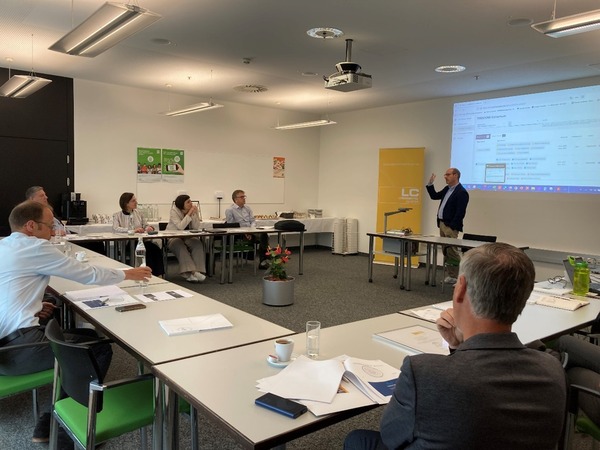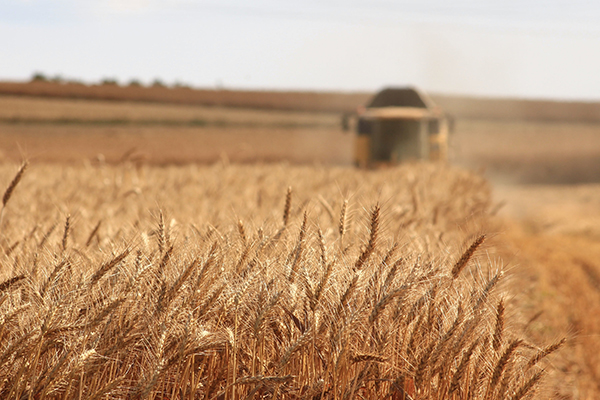Regional bioeconomy in practice: The Upper Austrian bioeconomy platform as a model for systemic transformation
Innovative approaches, practical formats and a strong network: As part of the EU-funded SCALE-UP project, the Regional Platform for Bioeconomy in Upper Austria is demonstrating how the transition to a sustainable, bio-based economy can be successfully achieved.
The Horizon Europe project SCALE-UP aims to identify, strengthen and put into practice sustainable bioeconomic value chains. In Upper Austria, this goal is being implemented via a regional multi-stakeholder platform. As an institutional structure, the Regional Platform for Bioeconomy in Upper Austria is integrated into the advisory board of the Food Cluster Upper Austria, creating organisational and content-related synergies between sectoral cluster policy and transdisciplinary bioeconomy development. This model has proven to be particularly efficient, both in terms of resource use (e.g. infrastructure, personnel, participant time) and in terms of the strategic integration of bioeconomy issues into existing governance structures in Upper Austria.
Another success factor is the close involvement of relevant stakeholders – from food industry over research to chambers and advocacy groups. The platform serves not only as an information sharing hub and a discussion forum, but also as a catalyst for new projects. The experience gained in the project clearly shows that the active participation of these groups is a key prerequisite for enabling long-term investment, establishing legitimacy and ensuring that activities continue beyond the project boundaries.
In spring 2025, work also began on systematically transferring the knowledge gained within SCALE-UP to the region. In a first step, practice-oriented workshop formats for the structured analysis of biogenic residues in food processing – with a focus on vegetable processing – were successfully piloted. In these formats, representatives from companies and business networks worked together to identify previously unused side streams and to evaluate possible internal and external utilisation paths.
The practice-oriented workshops proved particularly effective in incorporating technological, economic and regulatory framework conditions into the discussion. Furthermore, the practical workshops proved to be a viable tool for accelerating bioeconomy businesses and projects. Building on this experience, practice-oriented workshops involving stakeholders actively are being planned – including the food retail and bakery sectors – to involve other key stakeholder groups and highlight industry-specific challenges.
The aim of these activities is to focus attention on unused biogenic resources within the region and within companies, promote cross-sector networking and identify concrete approaches for bioeconomic innovations through moderated exchange. In the long term, this should lead to new utilisation concepts and value creation partnerships that contribute to the implementation of regional bioeconomy strategies.
Conclusion: The Regional Platform for Bioeconomy in Upper Austria proves that regional structures can provide a viable basis for sustainable economic transformation – provided they are strategically embedded, practice-oriented and broadly supported.
“The bioeconomic transformation begins in everyday regional life – with new ideas, courageous networks and the will to rethink existing structures.”
— Gabriele Wolkerstorfer, Project Manager, Food Cluster Upper Austria
„The bioeconomy is not just a concept—it's a chance for regions to create green jobs, circular systems, and future-ready communities.”
-Alexander Pindur, Project Manager, Food Cluster Upper Austria










